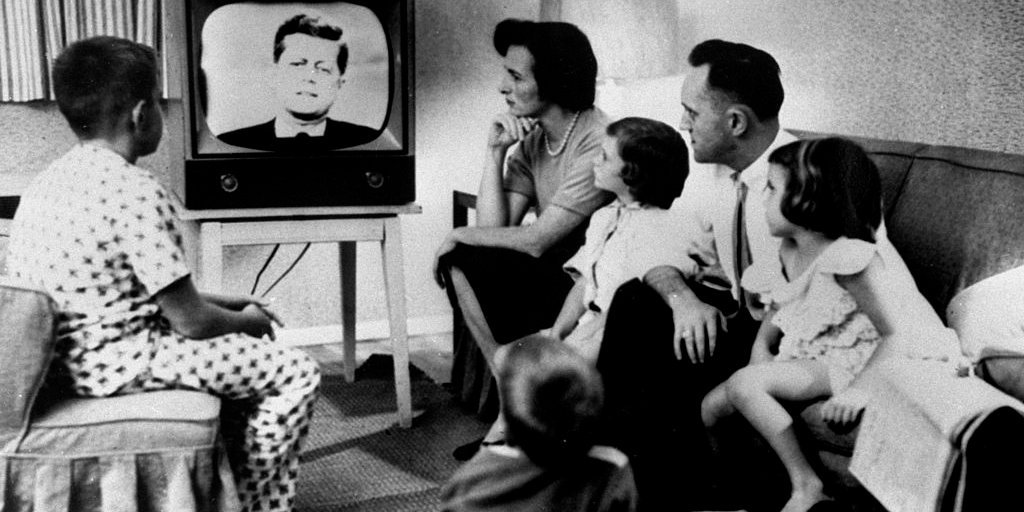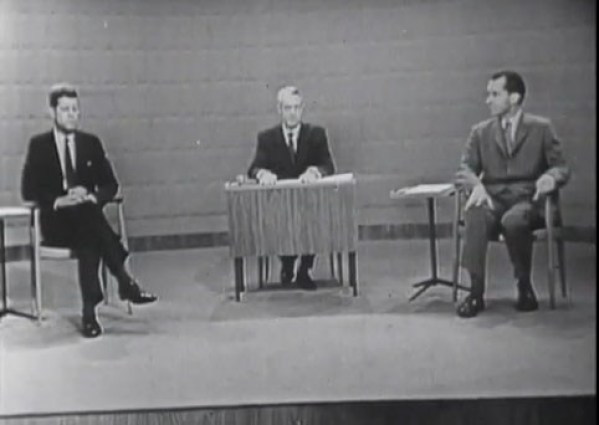
Typical American family gathered around TV, which displays John F. Kennedy's face, to watch debate between Kennedy & Richard Nixon during presidential election.
Time Life Pictures—The LIFE Picture Collection
The first debate of the 1960 Presidential election was held on September 26th. It was the first televised debate and considered to be the most influential debate of all time. For the first time, families could sit in front of their television and see the candidates. 88% had televisions in their houses.
Despite the notoriety of this debate, many people have assumed one thing about it. The narrative goes that because Nixon looked tired and old, he lost the election, while Kennedy, who wore makeup , won because looked more young and spirited. People who watched the debate thought that Kennedy won the debate, whereas people who listened to the debate thought that Nixon had won the debate. But according to William Benoit, professor of communications at the University of Alabama at Birmingham, there are too many factors in play to decide the division of TV and radio listeners.
The demographics come into play. Farmers listening to the radio while in their tractors might have had different ideas and thoughts on the debate compared to a salesman watching the debate on TV with his family.
